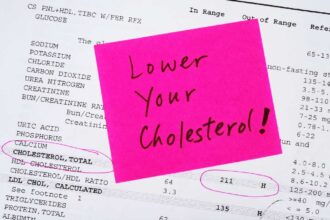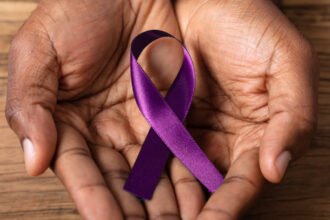Healthworks Collective has been committed to exploring the full picture of recovery after trauma, with a focus on what happens after the emergency ends. You don’t hear as much about the slow, day-to-day process of rebuilding a life, but it’s where real recovery begins. However, we do have some articles that will teach you to you heal more quickly.
There are more than 3 million non-fatal injuries each year, according to the American Association for the Surgery of Trauma. You can’t fully prepare for the emotional and physical toll this takes, even when the injury isn’t life-threatening. Keep reading to learn more.
The Road to Physical Healing
It is common for people to underestimate how long recovery takes. You should expect six to twelve weeks for the body to heal, according to Mount Elizabeth Hospitals. There are setbacks for many people, especially when pain management or mobility becomes difficult.
There are 36,164 motor vehicle crashes every day in the U.S., each with the potential to disrupt a person’s life completely. You never plan for these events, and yet they’re a leading cause of long-term injury. It is during these moments that support systems matter most.
You may find that recovery is just as mental as it is physical. It is difficult to adjust to a slower pace of life after being active and independent. There are emotional hurdles that go far beyond what can be measured in a doctor’s chart.
You won’t always see progress right away, and some injuries leave lasting changes. There are people who regain their strength through therapy, time, and routine. It is often the small victories—walking unassisted, returning to work, or even sleeping through the night—that mark the real milestones.
Recovery from serious injuries is rarely an easy process. Whether you’re healing from a surgery, managing chronic pain, or recovering from a tragic accident, the path to wellness takes dedication and patience. And, understanding the process can help you and your family prepare for what’s ahead.
The Reality of Serious Injury Recovery
When your body suffers major trauma, healing goes far beyond that first trip to the emergency room. If you’re recovering from severe injuries, especially those from high-impact events like truck accidents, workplace incidents, or bad falls, you’re looking at months or even years of intensive rehabilitation. The massive force involved in commercial truck collisions can cause devastating injuries including brain trauma, spinal damage, broken bones, and internal injuries that need specialized, long-term care.
Your initial treatment focuses on keeping you alive and stable. Emergency surgeries, trauma care, and round-the-clock monitoring help you through the most dangerous period. But once you’re medically stable, the real work begins. This is when multiple medical specialists team up to tackle different parts of your injuries and create a plan just for you.
Working with Multiple Specialists
Your recovery team might include orthopedic surgeons, neurologists, rehabilitation doctors, physical therapists, occupational therapists, speech therapists, and mental health professionals. Each one brings something different to help you heal.
Physical therapy usually becomes the foundation of your rehabilitation, especially if you have bone, muscle, or joint injuries. Whether you’re rebuilding strength after being crushed in a trucking accident or working to move again after being bedridden, your physical therapist will guide you through exercises designed just for your situation. You’ll work on getting your movement back, rebuilding muscle strength, improving your balance, and relearning basic movements that your injuries may have affected.
Occupational therapy focuses on getting you back to your daily life. These therapists help you regain the ability to do essential things like getting dressed, cooking, driving, and returning to work. If your injuries have left you with permanent disabilities, occupational therapists will help you adapt your home and learn new ways to stay independent.
Dealing with the Emotional Impact
Your physical recovery is just part of the story. The emotional impact of serious injuries, especially from sudden traumatic events like commercial vehicle accidents, can hit you hard and last a long time. Many people experience PTSD, anxiety, depression, and grief over abilities they’ve lost or how their life has changed.
Getting mental health support becomes just as important as your physical therapy. Psychologists and psychiatrists can help you work through your trauma, develop ways to cope, and keep you motivated during the tough parts of rehabilitation. Support groups where you can connect with others who’ve been through similar experiences often provide incredible emotional support and practical tips from people who truly understand what you’re going through.
Managing the Financial Burden
The cost of extensive medical treatment and rehabilitation can be crushing for you and your family. Extended hospital stays, multiple surgeries, ongoing therapy sessions, medical equipment, and potential home modifications add up to huge expenses that can continue for years. You’re also likely dealing with lost income during your recovery, which makes the financial stress even worse.
Insurance coverage varies a lot, and you might find that certain treatments, equipment, or therapy sessions aren’t fully covered. Understanding your insurance benefits and looking for additional resources becomes a crucial part of your recovery. If your injuries came from accidents involving commercial trucks or other responsible parties, you may need legal help to make sure you get proper compensation for medical bills, lost wages, and ongoing care.
Building Your Support Network
You can’t do this alone – and you shouldn’t have to. Your family, friends, and caregivers play huge roles in providing emotional support, helping with daily tasks, and keeping you motivated during the hardest times. But caring for someone with serious injuries can be overwhelming for your loved ones too.
Your healthcare team will often provide resources and training for your family members, teaching them how to help with exercises, spot warning signs of complications, and give you the right kind of emotional support. Community resources, including nonprofit organizations and support groups, can offer additional help and connect you with others facing similar challenges.
The road to recovery from serious injuries is tough, but with the right medical care, strong support from people who care about you, and your own determination, you can achieve remarkable improvements in your quality of life. Every small victory, whether it’s taking your first steps, going back to work, or being able to take care of yourself again, represents a huge milestone in your healing journey.










